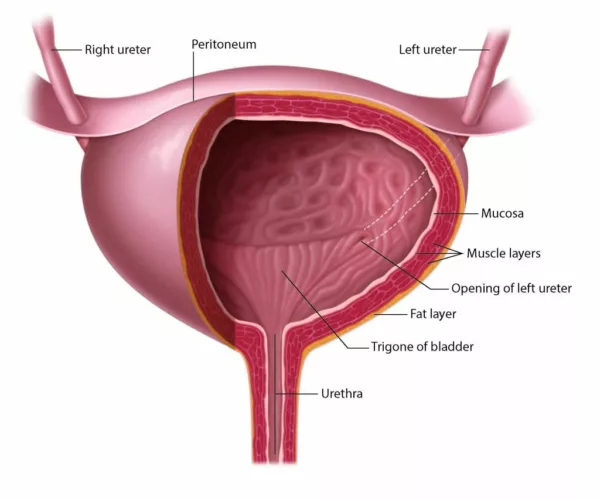American Society of Clinical Oncology endorses EAU Guideline on Muscle-Invasive and Metastatic Bladder Cancer

Last March 21st the American Society of Clinical Oncology (ASCO®) issued an endorsement of the European Association of Urology (EAU) Guidelines on Guideline on Muscle-Invasive and Metastatic Bladder Cancer (MIBC), 2015 edition. A 2016 update of the EAU MIBC Guidelines has just been released at the 31st Annual EAU Congress (Munich March 11-15, 2016).
ASCO® endorses all but one of the recommendations in the EAU MIBC Guidelines, by Witjes et al, with minor qualifying statements, including highlighting the use of chemoradiotherapy for select patients with MIBC and recommending inclusion of patients in clinical trials for the treatment of metastatic disease in the second-line setting. For this endorsement, only the recommendations relevant to treatment were assessed.
The ASCO® endorsement process involves an independent review for developmental rigour of all material by two methodologists (based on several publications, including the web-based guideline, a journal publication, and an abbreviated pocket version). The methodological evaluation is based on the Rigor of Development subscale from the AGREE II instrument. The literature of the EAU MIBC Guidelines was updated and an ASCO® Endorsement Panel reviewed the content and recommendations.
This ASCO® endorsement reinforces the recommendations offered in the EAU MIBC Guidelines which are qualified as clear, thorough, based on the most relevant scientific evidence in this content area, and presenting options that will be acceptable to patients.
ASCO® Key Recommendations for the EAU MIBC Guidelines
(EAU recommendations and ASCO®-endorsed guidelines with qualifying statements (in italics).
- Multidisciplinary input via tumour board discussions and/or directed consultations is critical to the optimal management of patients with MIBC and metastatic bladder cancer (eg, referral to a medical oncologist should be made for a discussion of neoadjuvant chemotherapy and referral to a radiation oncologist for a discussion of bladder preservation in patients with muscle-invasive disease). Implementation of these guidelines requires the integration of urology and medical and radiation oncology expertise to provide the highest level of care to patients.
- Neoadjuvant chemotherapy is recommended for T2-T4a, cN0M0 bladder cancer and should always be cisplatin-based combination therapy.
- Neoadjuvant chemotherapy is not recommended in patients who are ineligible for cisplatin- based combination chemotherapy, unless the goal is downstaging surgically unresectable tumours.
- Any decision regarding bladder-sparing or radical cystectomy in elderly/geriatric patients with invasive bladder cancer should be based on tumour stage, bladder function, and the ability to tolerate major surgery, radiotherapy, and/or chemotherapy.
- Radical cystectomy is recommended in T2-T4a, N0M0 and high-risk non-MIBC. Chemoradiotherapy-based organ preservation treatment may be offered to select patients with MIBC.
- In patients being treated with bladder-preservation therapy with curative intent, combined chemoradiotherapy is superior to, and is recommended over, radiotherapy alone.
- Although neoadjuvant chemotherapy is recommended, adjuvant chemotherapy may be offered to high-risk patients who have not received neoadjuvant treatment.*
- First-line treatment of fit patients with metastatic disease: Use cisplatin-containing combination chemotherapy with gemcitabine plus carboplatin, MVAC (methotrexate, vinblastine, doxorubicin, and cisplatin), or high-dose MVAC with granulocyte colony stimulating factor.
- First-line treatment in patients ineligible (unfit) for cisplatin: use carboplatin combination chemotherapy or single agents.
- In patients experiencing progression after platinum-based combination chemotherapy for metastatic disease, entry into a clinical trial is preferred. Alternatively, single-agent therapy may be offered (eg, paclitaxel, docetaxel, or vinflunine where available).
More information is available at www.asco.org/endorsements/MIBC and www.asco.org/guidelineswiki. Patient information is available at www.cancer.net.
EAU patient information recently added a new topic on bladder cancer. The full text and pocket version of the EAU MIBC Guidelines cancer can be found here.
Overall, the ASCO® Endorsement Panel commended the EAU on the development of its MIBC Guidelines, acknowledging the effort put forth by the EAU to produce an evidence-based guideline and stated its intention to disseminate it broadly to specialists and generalists in the United States who provide care for these patients.
The Guidelines Board has a policy, as part of its dissemination activities, of seeking formal endorsement of its guidelines from national societies and is therefore are delighted by this endorsement from a world-renowned society as ASCO®.